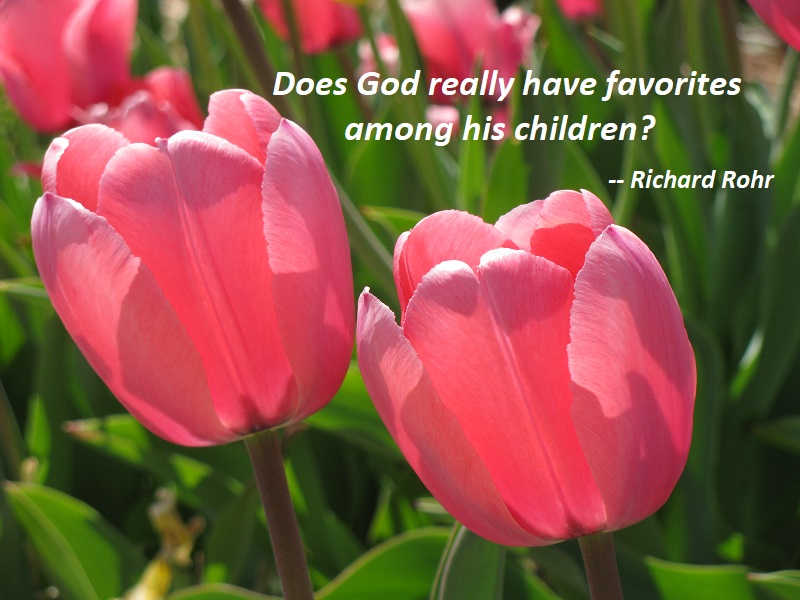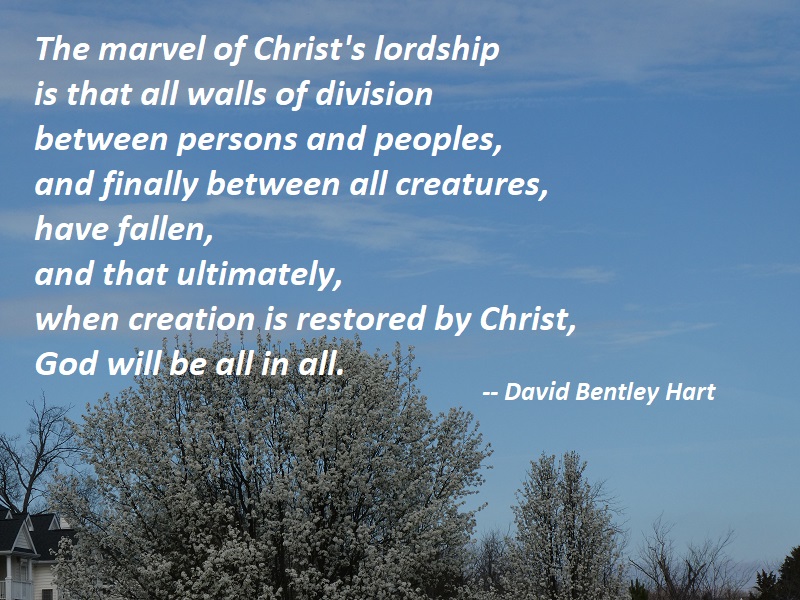Dearly Loved By God
The more I’ve studied the doctrine of Universal Reconciliation, the more I’ve started to notice something about those who embrace the view: they tend to be more loving and accepting of those who are unlike them.
Maybe it’s because when you realize that everyone is equally loved by God and that God is really intending to bring everyone to repentance, and that, one day, every knee will bow and every tongue will gladly confess that jesus Christ is Lord, well, you kind of relax and enjoy being alive.
See, instead of seeing people as “saved” or “lost,” and grouping everyone you meet into the “Christian” or “non-Christian” category, you may start to see people as simply people.
Not only that, but you also begin to see them as God sees them. You slowly recognize that everyone you meet — regardless of their beliefs or spiritual condition — is someone who is dearly loved by God. You also start to understand that everyone you meet is indeed your brother or sister, and you realize that we all have the same Heavenly Father.
This really starts to change the way you treat other people. It starts to bear good fruit in your life. It even makes it easier to love others as Christ has loved you, without conditions or strings attached.
Eventually, you begin to recognize that God loves everyone much more than you could ever love them; even your own family members who may be far from faith in Christ as the moment. You start to realize that God has a grand design in motion to draw everyone to Himself, eventually. We get to take part in that, if we can learn to abide in Christ and collaborate with the Holy Spirit in the process. But, we can also enjoy a newfound sense of ease with this process. Because now we’re not fighting the clock or worried about closing the sale. Instead, we’re trusting in God’s ultimate victory which is inevitable and unstoppable.
— Keith Giles, Jesus Undefeated, p. 155-156
Photo: South Riding, Virginia, December 2, 2020









